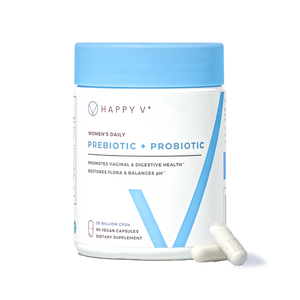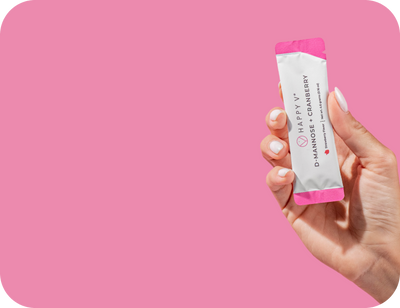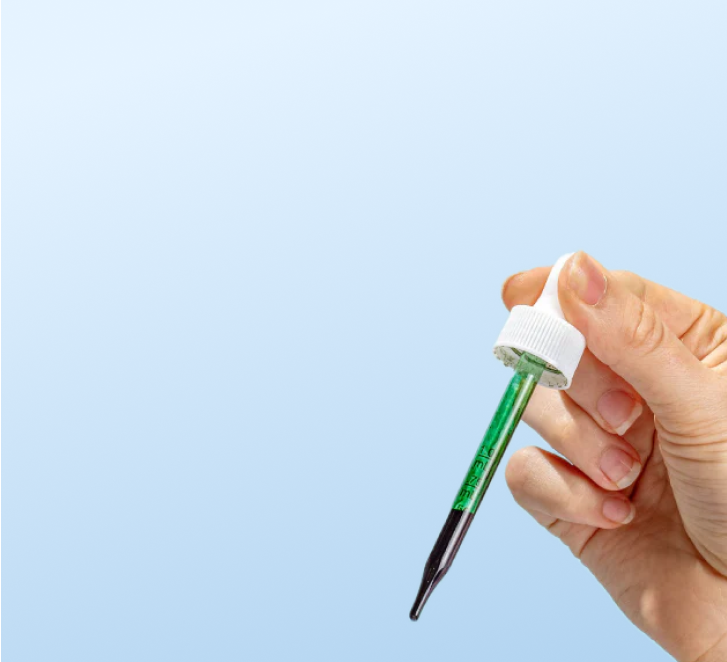- Fact Checked
- October 29, 2025
- 6 min read
Pee Smells Like Ammonia? Here’s What It Means for Your Bladder & Beyond
Table of Contents
Table of Contents
Your body is always trying to communicate with you about your health. Believe it or not, one of the ways it does that is through your urine. If you ever catch a sudden ammonia odor while in the bathroom, it might just be a nudge to drink more water, or it could signal something bigger, like a urinary tract infection (UTI).
Most urine smells are easy to decode once you know what to look (or sniff!) for, and a few simple habits can help keep your urinary system fresh, healthy, and balanced.
This post is for informational purposes only and does not constitute medical advice. See full disclaimer below.
What’s “Normal” for Urine Smell, Anyway?
Your body is a champ at getting rid of waste products, and urine is a big part of that. A mild scent is normal since pee carries urea, amino acids, and leftover fluids out of your system. But when that faint odor turns into a smell of ammonia, or worse, foul-smelling urine, it’s worth figuring out why, especially if you are experiencing other symptoms like burning during urination.
Common Causes of Ammonia-Smelling Pee
When people say their pee smells like ammonia, they’re usually describing a sharp, chemical-like scent, kind of similar to cleaning products or even cat urine. There are several reasons this can happen:
1. Foods & Supplements
Certain foods and vitamins can impact the smell of your urine. If you’ve just eaten asparagus, chicken, lots of leafy greens, or mega-doses of vitamin B6, don’t be surprised if your pee has a stronger ammonia odor. High-protein diets (hi, keto) also break down fats into ketones, which exit your body via urine and can cause a strong smell.
What to do: Try cutting back or swapping out triggers. If you’re taking supplements, chat with your healthcare professional about adjusting your routine.
2. Dehydration
One of the top common causes of urine that smells like ammonia? Good old dehydration.
Not drinking enough water, excess coffee or alcohol, or losing fluids from vomiting or diarrhea all reduce your water intake and make pee more concentrated. This means the urea and waste products build up—and so does that ammonia scent.
What to do: Drink enough water daily (aim for 8-10 glasses). If your urine is dark yellow or you see tiny bubbles in the bowl, you probably need more fluids.
3. Bladder & Kidney Issues
When your pee smell sticks around, despite drinking more water and changing your diet, you might have a bladder infection, kidney stones, or other urinary system issues.
Bladder stones or kidney stones can make urine smell like ammonia and even look pink due to blood. Kidney disease or liver disease can also throw off how your body filters waste products, leading to a strong odor.
What to do: Watch for pain near your spine, ribs, or groin, along with back pain or fever, then call your healthcare provider.
4. UTIs & Urinary Tract Health
A urinary tract infection (UTI) is another big reason your pee smells like ammonia. Harmful bacteria sneak into your urethra, multiply, and create that unmistakable odor, along with burning when you pee, feeling like you need to go all the time, or cloudy/pink pee.
Fun (or not-so-fun) fact: once you’ve had one UTI, your odds of getting another go up. As many as 27% of women report multiple UTIs per year, especially if dehydration or a build-up of waste products is a factor.
What to do: Don’t wait. See your healthcare provider for a urinalysis at the first sign of UTI symptoms. Left untreated, UTIs can lead to bigger health conditions like kidney disease.
5. Menopause & Hormonal Shifts
People associate menopause with night sweats and hot flashes, but it can change your urine odor, too! During menopause, lower estrogen levels and changes in vaginal flora can make you more prone to UTIs and incontinence, both of which can give urine a strong smell. Many menopause supplements are also heavy in B vitamins, another odor culprit!
How to Treat & Prevent Ammonia-Smelling Urine
While others might not notice the ammonia smell, we get that it can be alarming for you. Luckily, clearing it up is pretty simple. Just follow good urinary health hygiene, like:
- Hydrate, hydrate, hydrate. Drink 8-10 glasses of water daily to flush your urinary tract and keep waste products diluted.
- Tweak your diet. If you spot a pattern with ammonia smells after certain foods or meals (like Brussels sprouts, coffee, or a high-protein plan), scale back or switch it up.
- Don’t hold it in. Holding pee too long allows waste products to build up, which can increase your risk of bladder stones, UTIs, or a stronger odor.
- Keep good hygiene habits. Wipe front to back, pee after sex, and wash your genital area with warm water and a clean cloth. Avoid harsh soaps or bubble baths that disrupt your healthy bacteria.
- Add gentle daily support. If you’re prone to recurring UTIs, talk with your healthcare provider about supplements that support your bladder health.
Happy V’s D-Mannose + Cranberry pills are doctor-formulated to help flush unwanted bacteria out of your urinary tract, especially those pesky strains like E. coli that can lead to UTIs. D-Mannose is a naturally occurring simple sugar that works by binding to infection-causing bacteria and helping your body remove them when you pee. Meanwhile, cranberry’s natural compounds, called proanthocyanidins, may help prevent bacteria from sticking to the walls of your urethra in the first place. It’s a simple, science-backed way to show your bladder some daily love and help keep your urinary system feeling fresh, supported, and balanced.
When to See a Healthcare Professional
Most smelly urine or a pee smell like ammonia is harmless. But see your healthcare provider if you notice:
- Pain in your lower back, ribs, or groin
- A burning sensation when you pee
- Fever, chills, or signs of a bladder infection
- Blood in your urine
- Ongoing changes that don’t get better with hydration or diet tweaks
Final Thoughts
A little ammonia odor when you pee doesn’t have to signal panic mode. It’s your body’s way of telling you something might need a tweak, whether that’s more water, fewer funky veggies, or better bladder care.
Stay hydrated, listen to your body, and don’t be afraid to get real support. With simple habits and trusted daily supplements like Happy V’s D-Mannose + Cranberry, your urinary tract can keep doing what it does best: flushing out the bad and keeping you fresh, day after day.
Keep the Conversation Going
- Visit our blog for more on BV treatment options and women's health tips.
- Join our private Happy V Facebook group to hear from others who've been there.
- Explore supplements designed to support your vaginal health journey.
Disclaimer: This blog is for informational and educational purposes only and is not intended to diagnose, treat, cure, or prevent any disease. Statements about supplements have not been evaluated by the Food and Drug Administration. For more information about vaginal infections, visit the CDC or speak to a licensed healthcare provider.
FAQ
What if I already take antibiotics for UTIs?
Can D-Mannose be used alongside antibiotics for Urinary Tract Infection (UTI) treatment?
Does Happy V® D-Mannose + Cranberry help with urinary tract infections (UTIs)?
Our experts continually monitor the health and wellness space, and we update our articles when new information becomes available.
- Published on: October 29, 2025
- Last updates: October 29, 2025
Written by Hans Graubard
Edited by Liz Breen












